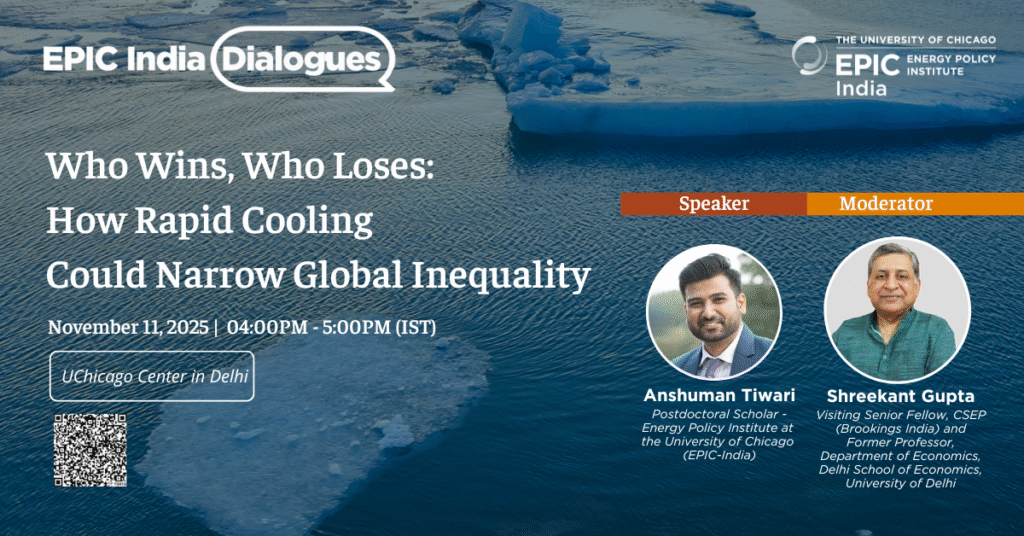As the world races to tackle climate change, when we act may matter just as much as how we act. This edition of the EPIC India Dialogue explores new research that asks a critical question: Does acting faster on climate change make the world fairer and safer?
The study compares different pathways to reduce greenhouse gases like methane and carbon dioxide—some that bring cooling quickly, others that take longer. The results are striking: acting early saves more lives and reduces inequality. Faster climate action delivers greater health benefits, especially for people in poorer regions who face the highest risks from rising temperatures. In short, rapid action outperforms slower or delayed approaches in both effectiveness and fairness.
The conversation will unpack what these findings mean for global climate policy and how countries can design strategies that are not only ambitious, but also equitable and life-saving.
Through this exchange, the EPIC India Dialogue continues its mission to connect cutting-edge research with real-world policy conversations—bringing evidence to the forefront of efforts toward a fairer, cleaner future.
About our Speaker
Anshuman Tiwari is a Postdoctoral Scholar at the Energy Policy Institute at the University of Chicago (EPIC India). Before joining EPIC India, he was a Postdoctoral Fellow at the Environmental Markets Lab at the University of California, Santa Barbara. He holds a PhD in Environmental Economics from the London School of Economics, a Master’s degree in Public Policy from the University of California, Berkeley, and an undergraduate degree in Computer Science and Engineering from the Indian Institute of Technology (ISM Dhanbad).
His research examines how environmental and climate policies affect equity and livelihoods. His recent work shows how the timing of global climate action—acting rapidly versus delaying—can dramatically change health and mortality outcomes across the world, revealing that faster action saves more lives and promotes a fairer global response to climate change.



